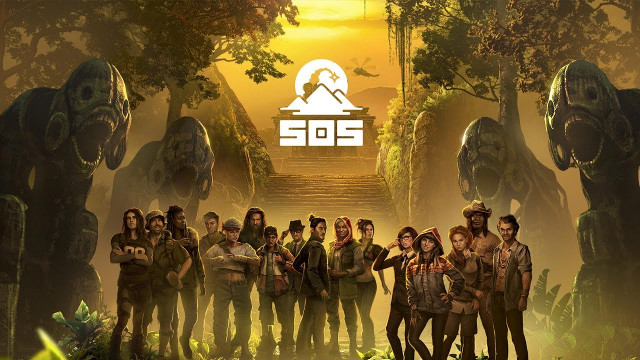Growing up before the age of YouTube, my love of stand-up and improvisational comedy was shaped largely by what was available on Comedy Central. I remember many a Saturday morning spent watching Whose Line Is It Anyway? – much to the annoyance of my mother and sister. Performers such as Ryan Stiles and Colin Mochrie made improv comedy look so easy. The way they played off each other’s performances, it was like watching a tennis match between Mario and Luigi (I don’t watch tennis so my only reference is Mario Tennis for the N64). Electrifying and unpredictable, even the worst bits could be saved by their personality and charm. I could never do what they do, but I could admire the art form from a distance.
When I arrived in San Francisco Tuesday afternoon, I was expecting to see SOS, a game that sounded like just another survival game a la Rust or DayZ. I was not expecting to walk into an audition.
Also: Frustrations of a Gamer: Bad Gameplay in Survival Games
SOS is the first game out of Outpost Games. Outpost Games is comprised of former EA, YouTube and Twitch veterans, which explains the unique nature of their pitch. On the surface, SOS sounds like a boilerplate PUBG clone. Sixteen “contestants” are placed on an island. Players are given thirty minutes to find one of several relics that will guarantee them safe passage on the escape helicopter. With only three seats available, players are encouraged to form alliances, betray said alliances and ultimately make it off the island.
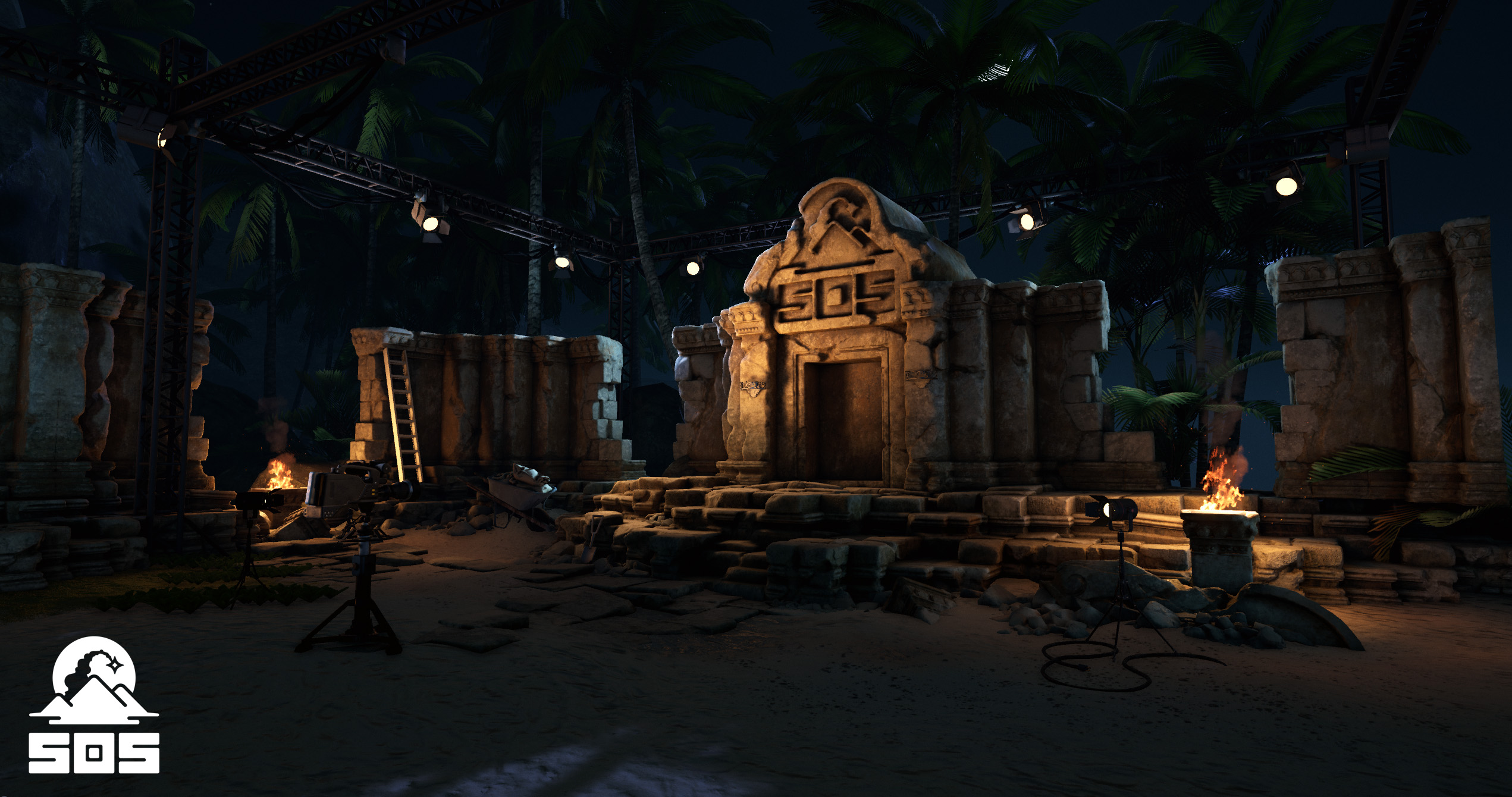
The twist is in what Outpost Games wants SOS to be. SOS, they said, is not an esport. It’s more like a reality television show. And I was there to audition for the pilot.
My character’s name was Brodo Baggins (I didn’t choose it, but I did wish I had thought of it). I was a burly, bald man who looked like he could cut you with a stare but spoke with the cadence of a nervous open-mic comedian. Before the game began, players were asked to introduce themselves. I watched as the camera cut to each of the player avatars – or “contestants” as the game prefers – and laughed at how in-character everyone remained. Some had outlandish accents. One spoke through a voice modulator, making her sound eerily similar to Siri. When the camera cut to me, I panicked. What should I say?
“Uhhh…hi.” A real charmer, this one.
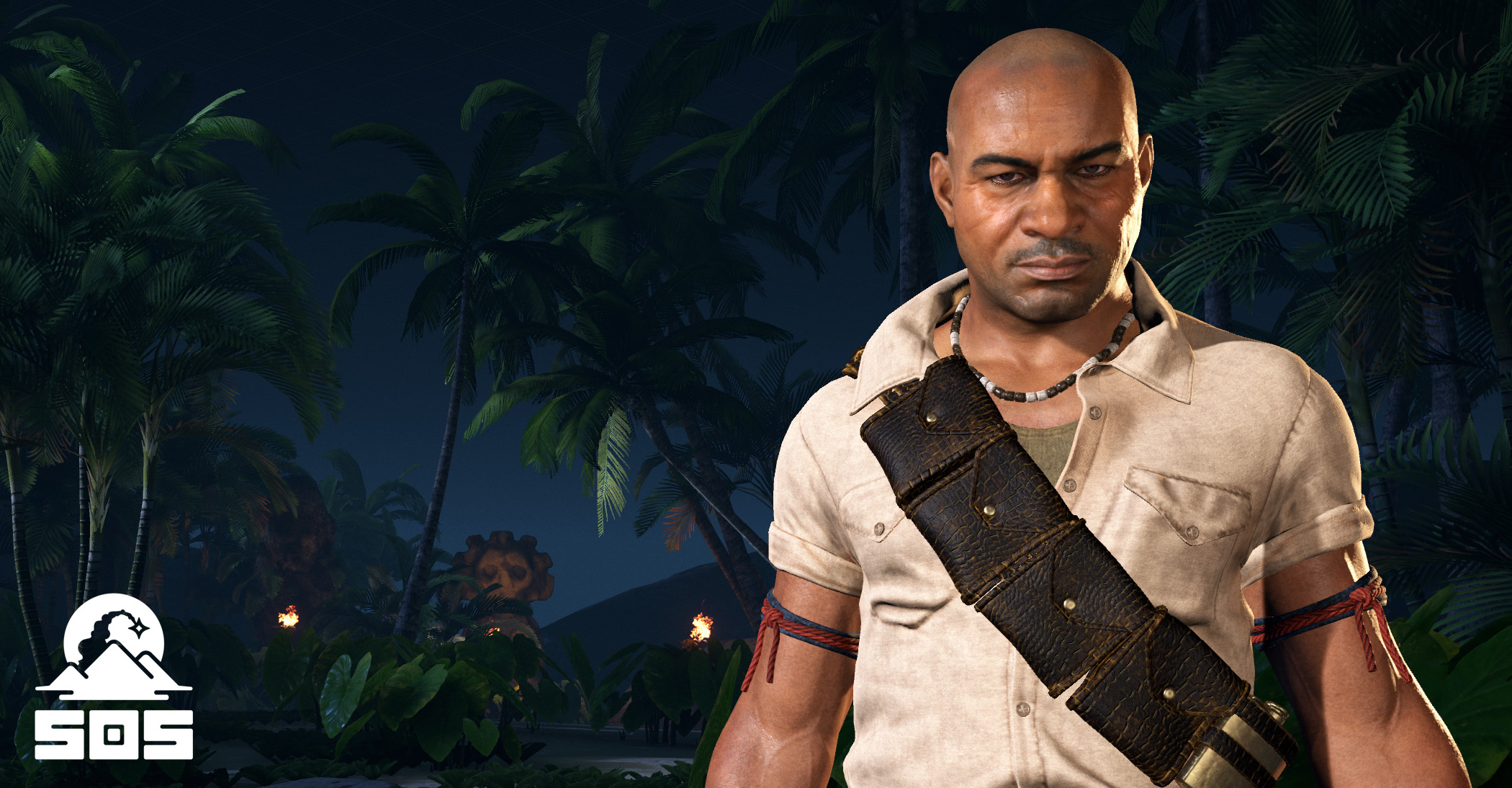
(Not pictured: me bombing on stage in front of virtual strangers)
The opening segment is not just an homage to reality shows like Survivor. It’s one facet of Outpost Game’s goal to encourage players to perform. Built around SOS is their Hero platform, which allows audience members to engage with the game they’re watching. They can cheer – or boo – player performances, which will affect end-game scores and rewards. If a supply drop is requested, audience members can vote on its contents. All of this ties into Outpost Game’s goal of moving video games away from being a consumable item and into an active entertainment platform.
I was dropped onto one of La Cuna Island’s many beaches (it is, after all, an island) with nothing but a radio and a map. It wasn’t long before I encountered another player. I was ready to fight, but she waved.
“Hi! I can’t hear you,” she said. Maybe her headphones weren’t working, I thought.
Walking over to a nearby bench, she opened a toolbox and took out a hatchet.
“Here,” she said. “A peace offering.”
I instinctively clicked the left mouse button, and accidentally punched her in the face.
“Sorry!” I said, forgetting she could not hear me. I frantically searched for the wave button to signify it was an accident. I held up my hand, and she held up hers. We high-fived, which in SOS meant that we were now a team.
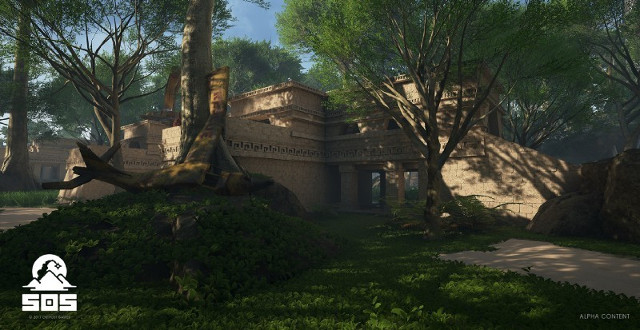
My mysterious deaf teammate led the way toward an abandoned outpost. I could tell she had been on this island before, and judging by her performance I wondered if she was a Twitch streamer. I was told ahead of time that there would be some folks joining our matches remotely, and the more vocal performances seemed to confirm my suspicions.
We soon joined up with another woman, Momo, who spoke with an exaggerated Jersey accent. I kept quiet, not because I was in character but because I was overwhelmed. If thirteen-year-old boys taught me anything (phrasing!), it’s that you always turn off your mic. I was used to playing multiplayer games in silence, but this wasn’t a multiplayer game in the traditional sense. This was an improvisational comedy routine. And I was doing a horrible job at “Yes, and…” – ing my way through it.
Not long after teaming up, I was killed while attempting to take the relic from some unspeakable human-shaped monster. Not by the monster, mind you. Momo accidentally stabbed me in the chaos.
“Nooo, not Brodo!” she cried in her obviously fake Jersey accent. Then, whispering, “We will avenge you.”
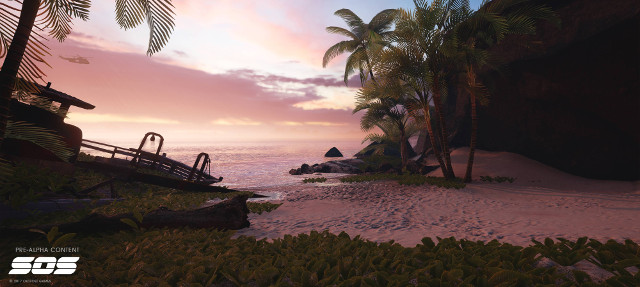
Of the few matches I played, I spent most of the time as a spectator. Not that I’m complaining; I was more entertained by the other performances. I watched as two teammates, with only one relic between them, settled who got to leave the island with an impromptu duel (using papayas, no less). Their duel was beset by the island’s creatures, led by one of the contestants-turned-feral. Another match had at least ten contestants on one team, which was working well until one stray gunshot led to an unexpected bloodbath.
Being an old man in the video game industry, I have never understood the appeal of Twitch streamers and YouTubers. To me, it watches like someone performing at a game, reacting to a game’s systems and mechanics in an attempt at humor. My time with SOS played out more like an improv comedy troupe inviting me on to the stage and letting me be a part of the bit. It was exciting, but also nerve-wracking. I wasn’t the star of the show as the team at Outpost wanted me to feel. Much like improv comedy in general, I could also see this game being something that’s not for everyone. I played in a very controlled environment with seasoned performers. With the upcoming closed beta this weekend, I am very curious to see how many people will go beyond just “playing” the game and engage in a little “Yes, and…” of their own.
